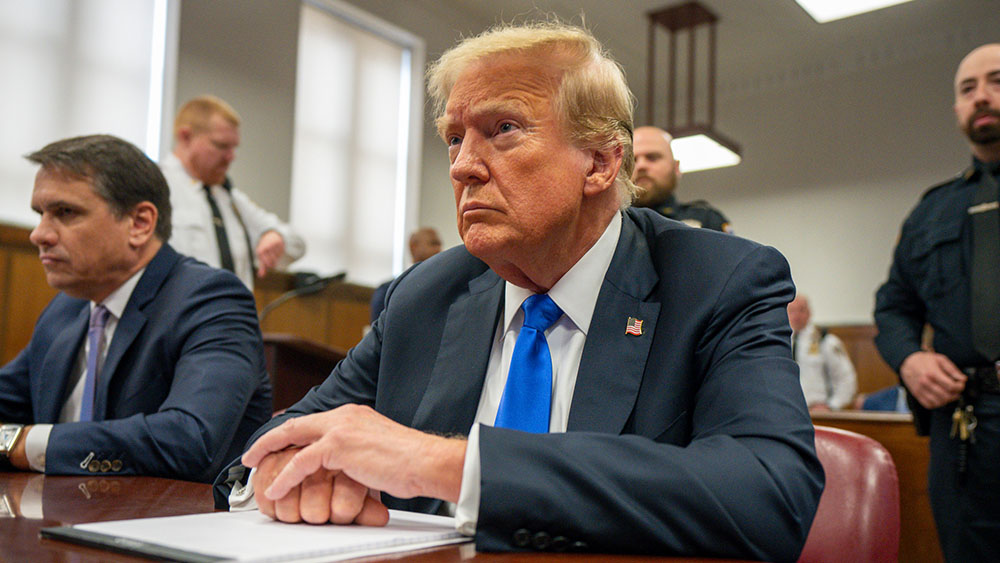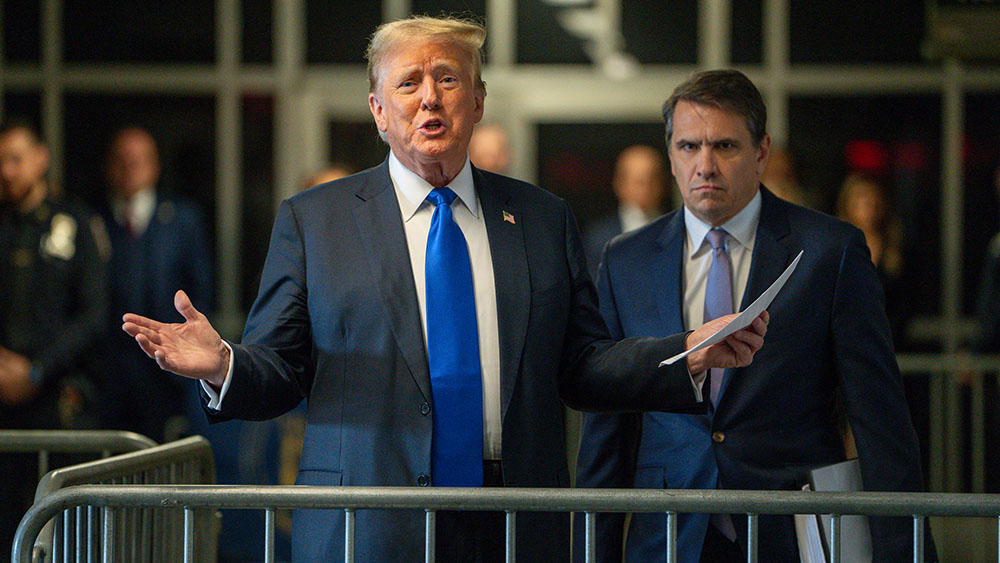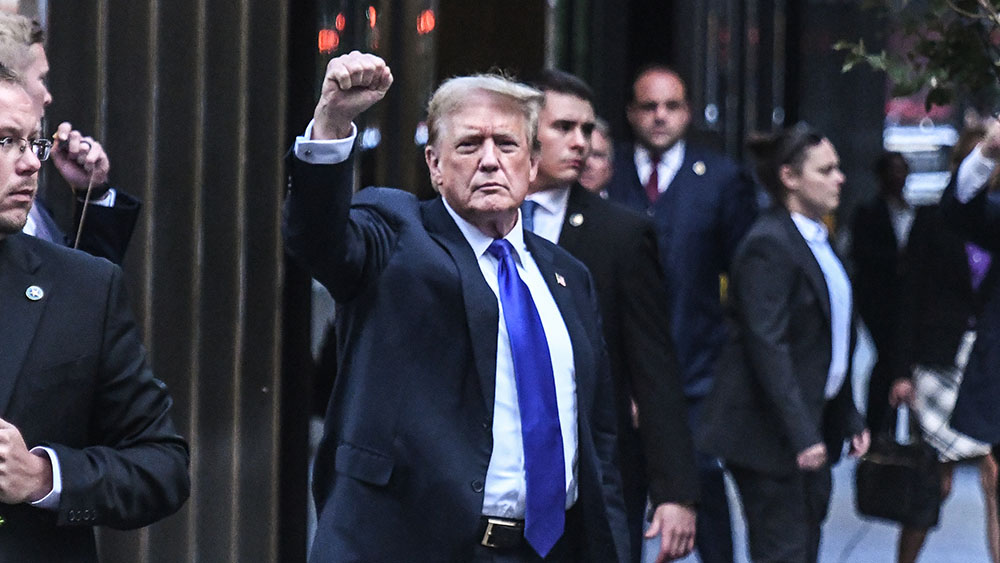
The legal team of former President Donald Trump has asked the judge who presided over his business records falsification trial in New York to lift the gag order on him that bans him from commenting on court staff, witnesses, prosecutors, jurors and other individuals tied to the case.
In a letter sent to New York Supreme Court Justice Juan Merchan on Monday, June 3, attorneys Todd Blanche and Emil Blove argued that the order, first imposed on Trump back in March, amounts to a continued violation of his First Amendment rights. (Related: Donald Trump found GUILTY on all 34 charges in blatantly rigged New York trial, could be sentenced to 20 years in prison.)
"Now that the trial is concluded, the concerns articulated by the government and the Court do not justify restrictions on the First Amendment rights of President Trump – who remains the leading candidate in the 2024 presidential election – and the American people," wrote the attorneys.
The legal team further argued that the need for Trump to regain his freedom of speech and "unrestrained campaign advocacy is even stronger" in light of recent comments and "continued attacks" from Democrats, including President Joe Biden, regarding the verdict against Trump.
The legal team further noted in its argument that "the defense does not concede that there was ever a valid basis for the gag order and reserves the right to challenge the irreparable First Amendment harms caused by the order."
Prosecutors want gag order to remain in place until after sentencing
The Manhattan District Attorney's Office argued for the judge to keep Trump's gag order in place at least until the former president is sentenced on July 11 "and the resolution of any post-trial motions."
Assistant District Attorney Matthew Colangelo argued in opposition to any immediate termination of the gag order, claiming that the court "has an obligation to protect the integrity of these proceedings and the fair administration of justice at least through the sentencing hearing and the resolution of any post-trial motions."
In issuing the gag order in March, Merchan noted that the prosecutorial team of District Attorney Alvin Brag had sought the gag order only "for the duration of the trial." But, Colangelo argued that the order was "based not only on the need to avoid threats to the fairness of the trial itself" but also on the judge's "obligation to prevent actual harm to the integrity" of the case.
If the gag order remains in place until July 11, the former president will be barred from speaking about witnesses, jurors, court staff and prosecutors on the case during the first presidential debate with Biden on June 27.
His sentencing is also only four days before the Republican National Convention meets in Milwaukee, Wisconsin, and Trump could be risking a harsher sentence if he decides to comment on the individuals protected under the gag order before it is lifted.
In determining his sentence, Merchan has discretion and may take into account factors such as Trump's conduct during the trial, prior gag order violations and lack of remorse.
For the 34 guilty verdicts, Trump faces up to four years in prison – capped at a total of 20 years – and a $5,000 fine per felony conviction.
Watch this clip of former President Donald Trump explaining how his gag order and the threat of jail time for violating it is restricting his freedom of speech.
This video is from the NewsClips channel on Brighteon.com.
More related stories:
Texas AG Ken Paxton says Trump verdict is "dark and shameful day in American history."
Sources include:
Please contact us for more information.




















